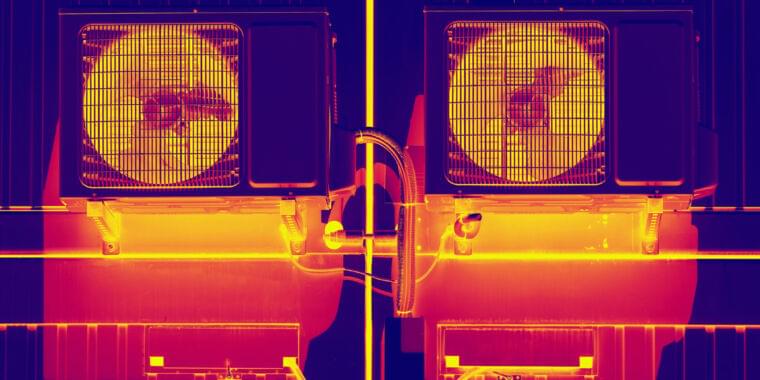Various forms of heat pumps—refrigerators, air conditioners, heaters—are estimated to consume about 30 percent of the world’s electricity. And that number is almost certain to rise, as heat pumps play a very large role in efforts to electrify heating to reduce the use of fossil fuels.
Most existing versions of these systems rely on the compression of a class of chemicals called hydrofluorocarbons, gasses that were chosen because they have a far smaller impact on the ozone layer than earlier refrigerants. Unfortunately, they are also extremely potent greenhouse gasses, with a short-term impact several thousand times that of carbon dioxide.
Alternate technologies have been tested, but all of them have at least one major drawback in comparison to gas compression. In a paper released in today’s issue of Science, however, researchers describe progress on a form of heat pump that is built around a capacitor that changes temperature as it’s charged and discharged. Because the energy spent while charging it can be used on discharge, the system has the potential to be highly efficient.









Comments are closed.